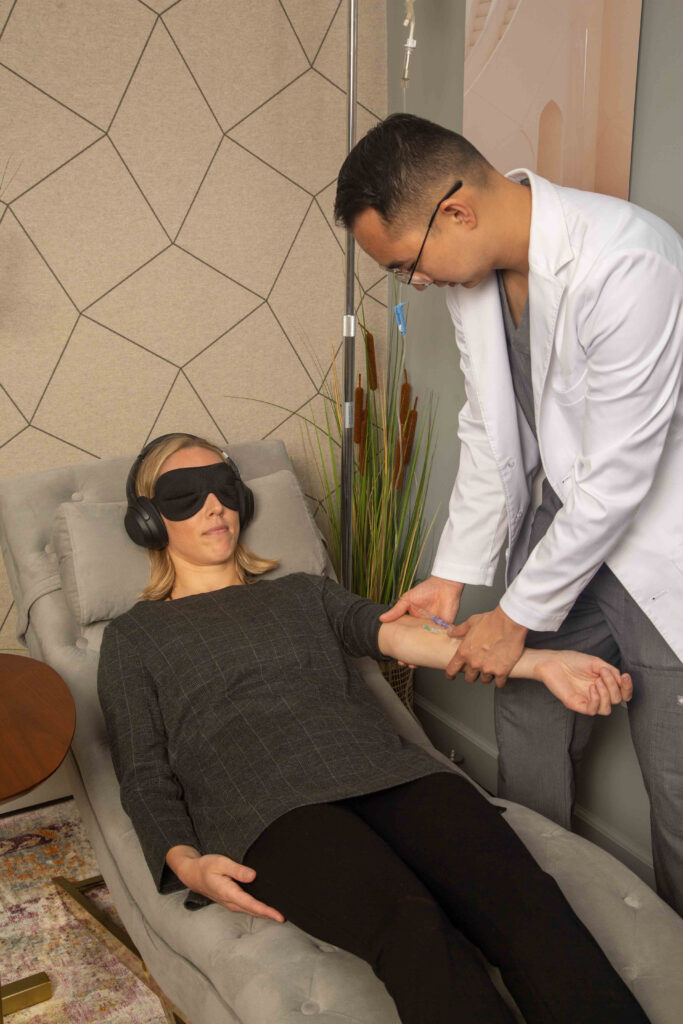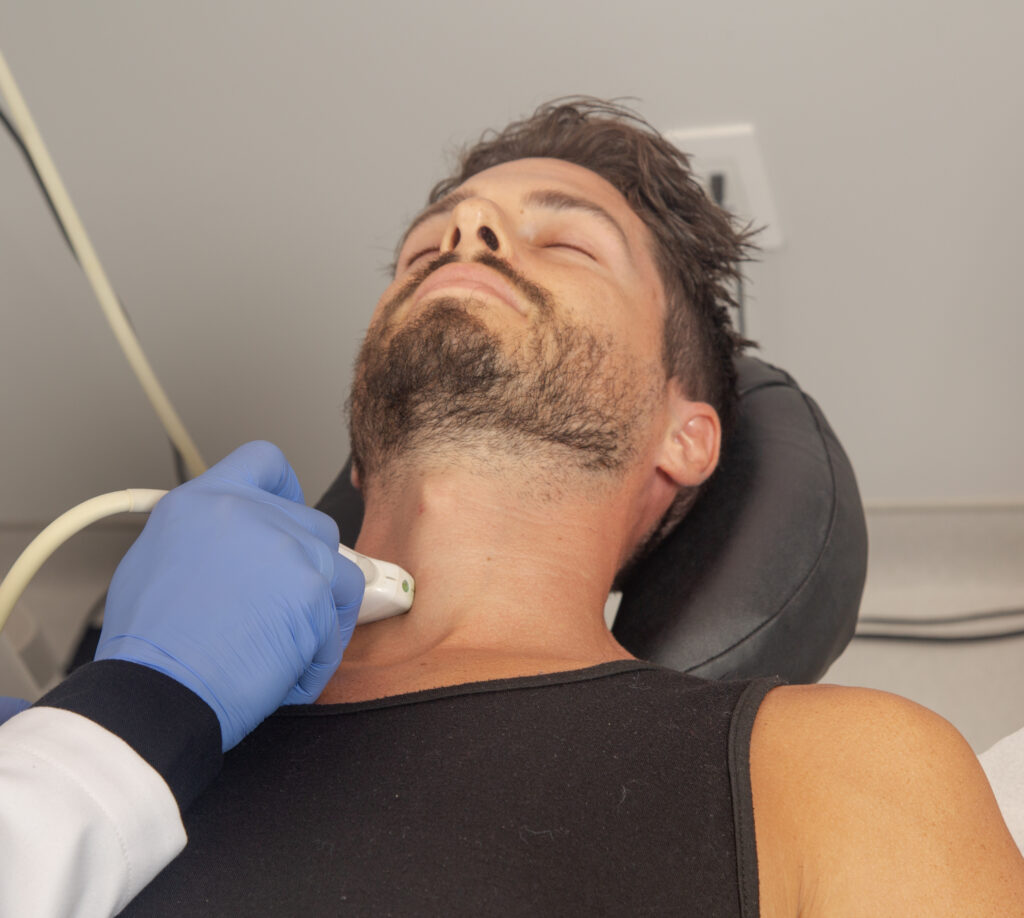The ketamine rebrand from party drug to powerful mental health aid has been slowly building over the past decade, but the past year has marked a turning point in its PR overhaul. Continuous coverage in reputable news outlets, a Netflix docuseries based on Michael Pollan’s 2018 best-seller How to Change Your Mind, and an abundance of new clinics has ushered ketamine into mainstream dialogue.
Though the science continues to prove its efficacy in activating neural activity in regions of the brain associated with depression, ongoing debate continues around the safest and most efficient ways to make ketamine accessible for people living with treatment-resistant depression.1,
As the ketamine industry grows, two major factions are emerging: clinical administration and at-home care. Before we jump into the pros and cons of both, it’s important to understand the FDA’s role in these access ways.
In 1970 the FDA cleared ketamine as a safe anesthetic.2 In the years that followed clinicians realized that ketamine had more to offer and initiated research focused on its antidepressant potential. Fast-forward to 2019: the FDA approved esketamine, a ketamine nasal spray for treatment-resistant depression and indicated its use in clinical environments.2
As of today, esketamine (commonly known as Spravato) remains the only FDA-approved formulation of ketamine for depression. However, doctors administer off-label forms of ketamine based on their proven efficacy. Other forms of ketamine currently being utilized (off-label) for depression include: lozenges, tablets, intravenous (IV) infusions, and intramuscular injections.
Ketamine Therapy in Clinical Settings
Seeking ketamine therapy in clinical settings adds an extra layer of both safety and emotional support. Trained physicians and (physician’s assistants) can monitor reactions closely and, if-needed, guide a patient who may be unsettled by the dissociation. Further, clinical settings understand exactly what is needed to prepare patients for the best possible experiences. Though ketamine administered in clinical settings is safe, it’s important to remember that ketamine is a medication that can cause dependence, which is why it’s critical to receive ketamine treatment under the supervision of a trained medical professional.
Many clinics, including Hudson Mind, also facilitate psychotherapy work during ketamine sessions. In these instances, psychotherapists join their patients during their ketamine therapy session at our clinic. Throughout the session psychotherapists offer guiding statements designed to help their patients confront past experiences and trauma in a productive way.
Ketamine Therapy At Home
With accessibility in mind, a number of ketamine clinics are structured around at-home services—giving patients the freedom to explore the healing and mind-opening benefits of ketamine from the comfort of their own homes.
The prospect of a dissociative journey can be anxiety-inducing, especially for first-time users who have never had a sensory-driven out-of-body experience before. Because environment plays a crucial role in all of our experiences, trying psychedelics in a familiar place may seem like a good solution for assuaging nerves.
And while comfort is nice, safety is everything. As is the case with any substance, ketamine should be handled with caution. Experiencing a psychedelic journey outside of a clinic means that trained professionals are not there to monitor your physical and mental progression. Many at-home clinics facilitate ketamine administration in tandem with a virtual guide, but in these scenarios a screen still separates participant and facilitator, making it more difficult to attune to the particulars of individual ketamine experiences.
The industry as a whole has a huge responsibility to bear. For ketamine to certify its place as a vetted antidote to severe depression, no clinic or at-home service can become a haven for fun-seekers. Working with psychotherapists and conducting thorough patient evaluations are necessary steps to stave off overuse and ensure that the patients who need treatment are able to receive it in safe settings.
The ketamine therapy program here at Hudson Mind is always administered in-clinic and under the supervision of trained medical professionals. In-clinic care allows us to not only ensure the safety of our patients, but also guide them toward the most beneficial experience possible.
Call or text 646.906.8703 to book your ketamine consultation today.
References:
1.“A Peek of How Ketamine Acts as ‘Switch’ in the Brain.” A Peek of How Ketamine Acts as ‘Switch’ in the Brain, 1 Dec. 2022, https://www.pennmedicine.org/news/news-releases/2022/december/a-peek-of-how-ketamine-acts-as-switch-in-the-brain.
2.“FDA Approves New Nasal Spray Medication for Treatment-Resistant …” U.S. Food & Drug Administration, 5 Mar. 2019, https://www.fda.gov/news-events/press-announcements/fda-approves-new-nasal-spray-medication-treatment-resistant-depression-available-only-certified.


